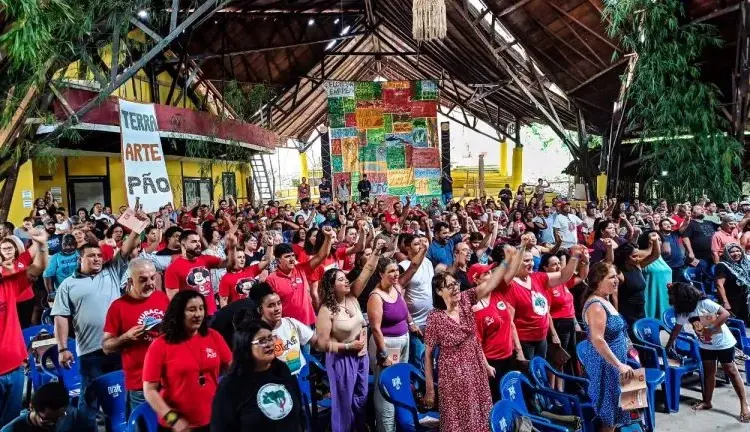The Landless Rural Workers' Movement (MST, in Portuguese) is meeting in Belém, the capital of the state of Pará, between Monday (20) and Friday (24), for the national coordination meeting, an annual event held every January. The aim is to plan the movement's actions for 2025 in the city that will host COP30. The topics to be discussed also include the agrarian and ministerial reforms under the government of Luiz Inácio Lula da Silva, taxation of the super-rich taxation and attacks on settlements. Around 400 leaders have gathered for the event.
This is the first time the meeting has been held in the Amazon region, explains João Paulo Rodrigues, from the MST's national leadership. “This is the moment for the movement to update its political stands on environmental policy and how we're going to behave with the many initiatives underway, such as renewable energies, the carbon credit issue, the tree planting campaign and, in particular, COP30,” he detailed.
Regarding agrarian reform, the mission will be to define a calendar for a national mobilization and negotiations with Lula, scheduled to happen in February. Violence in the countryside will also be addressed, focusing on the recent Tremembé massacre, which resulted in the murder of two activists in the Olga Benário Settlement, in the state of São Paulo, on January 10.
“We are surprised by the amount of conflicts in settlement areas that have already been conquered. Bolsonarism has had a very bad effect on the titling debate and has become a focus of dispute in the legal reserve areas and even in the settlements,” says Rodrigues, who demands ‘much more force’ in the actions of agencies such as the National Institute for Colonization and Agrarian Reform (INCRA, in Portuguese), the Attorney General's Office and the Federal Police.
“The government needs to do much more to preserve the areas conquered by landless workers, quilombolas and Indigenous peoples. In other words, land continues to be a major dispute in Brazil, and the MST is deeply sad by the murder of two of our activists in the Paraíba Valley during a cowardly attack last week.”
Political dispute
About the ministerial reform, Rodrigues is asking Lula for a signal about which ministers will represent the progressive spectrum and social agendas between 2025 and 2026, to lay the groundwork for 2026, Brazil’s next election year. “All the social areas of Lula's government need to present concrete initiatives so that we can have a better discourse. I don't think we can solve it just by changing ministers. We need to solve the budget issue,” he says.
Another priority is to define mobilizations of the working class and other sectors of society in defense of a national plebiscite for high-income taxation. The agenda has already been publicly defended on several occasions by Finance Minister Fernando Haddad, but the government has yet to progress on implementing the measure.
International issues, including the federal government's relationship with Venezuela and Palestine, will also feature at the meeting.




